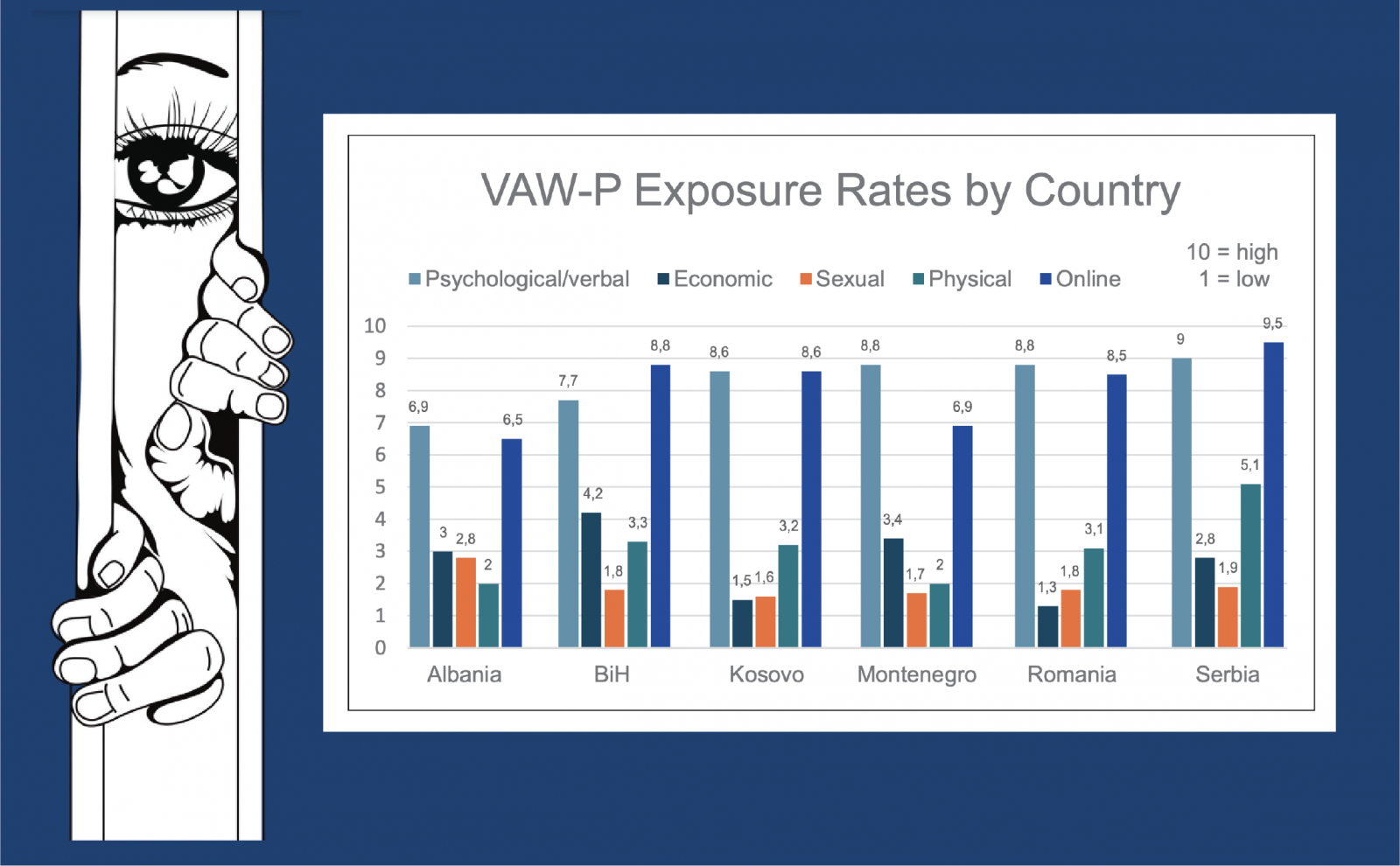
SHARE
ISSUES
Violence, real and threatened, is one of the most serious barriers to gender-inclusive democratic processes and institutions in southeastern Europe. NDI’s research shows that violence deters women’s participation in politics and public life, including among young women and girls. Under the Political Party Integrity program, NDI is connecting political party members and politically active women and men across southeastern Europe to end violence against women in politics (VAW-P)
While acts of VAW-P are often directed at individual women, they have an intent beyond their specific target: to frighten other women active in public life; to deter women who might consider engaging in politics; and to communicate to society that women should not participate in public life in any capacity. NDI conducted new research on the prevalence and forms of VAW-P in southeast Europe, gathering responses from women and men who are active members of political parties or who have political responsibilities in some level of government. Ninety-nine percent of respondents in the region stated that the number of women in politics is still unsatisfactory. However, politicians from Bosnia and Herzegovina, Montenegro, Romania and Serbia say that gender-based violence in politics is a normalized occurrence. While participants from Albania and Kosovo believe that gender-based violence against women in politics is not a normalized occurrence, every participant reported witnessing or hearing of some sort of VAW-P. The violence reported was more extensive than physical attacks, including psychological/verbal violence, economic violence, sexual violence, physical violence and online violence.
VAWP Exposure by country.PNG
NDI research has shown steady online and in-person VAW-P in southeastern Europe. Solidarity among women across the region – as seen in the response to the #NisamTrazila (#I did not ask [for it]) movement – and the increasing public spotlight help to increase pressure on political parties to address this challenge to women’s political participation. Party members in NDI’s program agreed on key action items to promote inclusion of diverse women in politics; recognizing that ethnic minority groups and LGBTQI+ communities face additional barriers to meaningful political participation, decision-making and leadership. Several also signed a public Declaration Against Violence Against Women in Politics, which included specific commitments. This declaration acknowledged the complex and expansive issue of VAW-P. The signatories also pledged to call out VAW-P in their own political parties or legislative bodies, catalyzing change from the inside out.
In July 2021, NDI held Breaking the Cycle-Gender Based Violence in Public Space in Sarajevo, Bosnia and Herzegovina, which gathered politically active women from across Europe to discuss tools to recognize, raise awareness and combat VAW-P. The event focused on NDI research documenting ways the COVID-19 pandemic has worsened pre-existing inequalities and disproportionately harmed women. As a result of this event, NDI assisted prominent women politicians from Bosnia and Herzegovina, Croatia, Montenegro and Serbia draft action plans for adoption by parties in the region.
NDI’s research consistently shows that the experience of gender-based violence is never an isolated one. VAW-P in southeastern Europe is similar to VAW-P in other regions. Through NDI’s Not the Cost campaign and other initiatives, the Institute will work to end this all too pervasive practice in the Balkans and beyond.
Author: Ryann Welch, Program Associate, Central and Eastern Europe
NDI's engagement in Southeastern Europe is implemented with support from the National Endowment for Democracy (NED).


